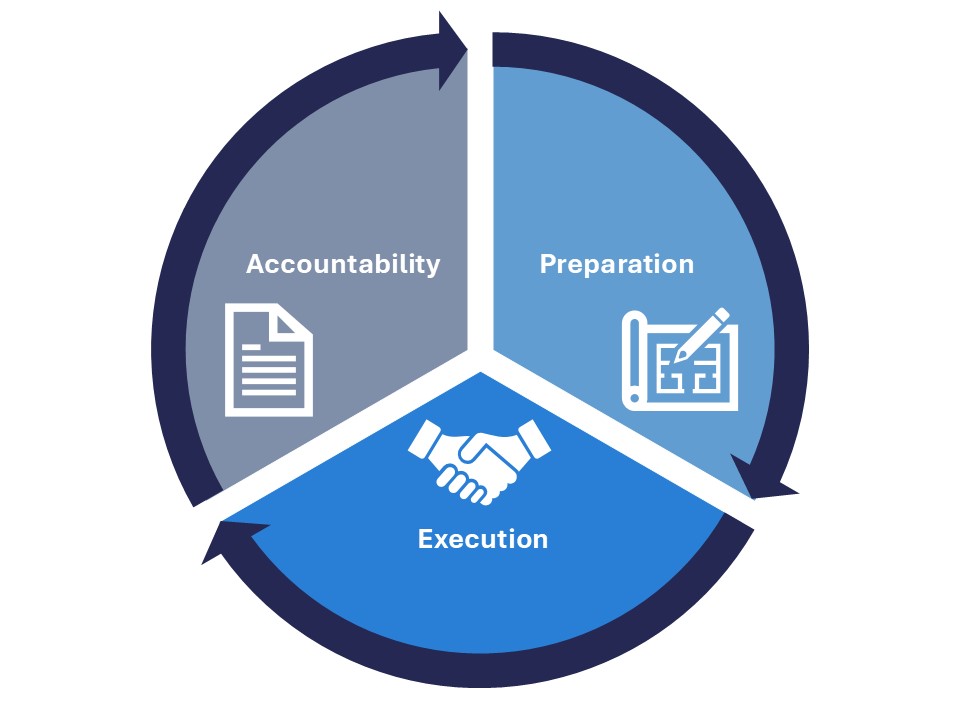
Budget cycle
The budget cycle is a systematic process through which the ministries plan, implement, monitor, and account for their policies. In other words, the budget is the financial translation of the policies of the Government of Aruba. In broad terms, the budget cycle consists of three phases: preparation, execution and accountability.


Preparation:
- What are the government's objectives?
- How will the government achieve this?
- How much will it cost?
- What is the amount of funds available?
Execution:
- Is everything proceeding as planned?
- Are expenses staying within budget?
- How is the (re)financing done?
- Is there reason to adjust the budget?
Accountability:
- What are the results?
- Was the policy executed efficiently?
- Was the policy implemented effectively?
- How much did it cost?